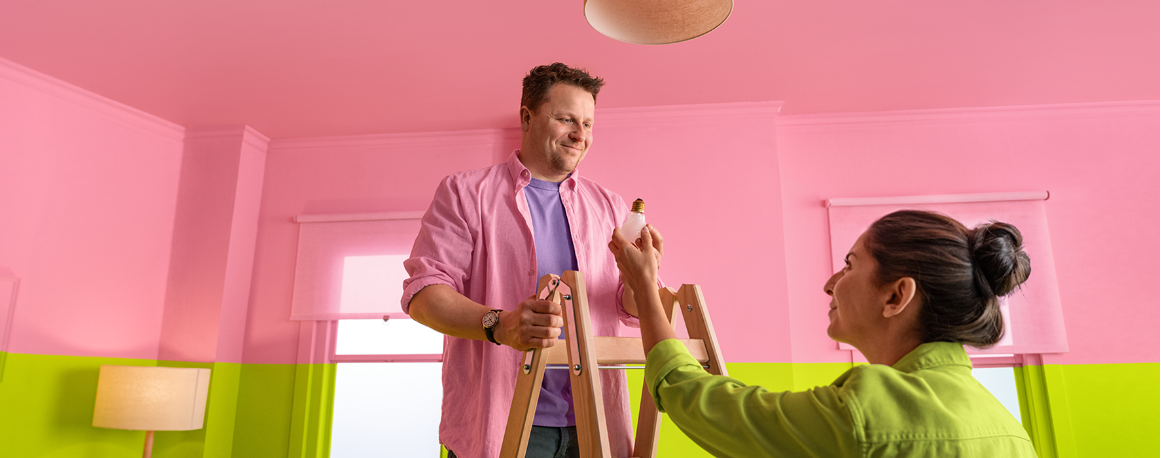
About SUNOSI
SUNOSI is a once-daily, FDA-approved medication for excessive daytime sleepiness (EDS) due to obstructive sleep apnea (O.S.A.) thatHow SUNOSI works
SUNOSI is a wake-promoting medication that may address disruptions in your brain that make you feel sleepy during the day.
- It is thought to improve wakefulness by increasing the activity of 2 wakefulness neurotransmitters in the brain: dopamine and norepinephrine† Footnote: The exact way that SUNOSI works to treat E D S due to O S A is unclear. It is the first and only approved medication for EDS due to O.S.A that works this way to help keep you awake during the day
- SUNOSI is not a stimulant. It’s a wake-promoting agent and is made of a medication called solriamfetol
Because of SUNOSI and my CPAP, I’ve felt more awake during the day than I have in years.”
Additional facts about SUNOSI
SUNOSI was not shown to cause symptoms of withdrawal or dependence in clinical studies following sudden stoppage of the drug
It is not known if SUNOSI is safe and effective in children
SUNOSI is a controlled substance with a low potential for abuse and dependency based on United States Drug Enforcement Administration drug scheduling
Keep SUNOSI in a safe place to protect it from theft. Tell your healthcare provider if you have ever abused or been dependent on alcohol, prescription medicines, or street drugs
Do not take SUNOSI if you are taking, or have stopped taking within the past 14 days, a medicine used to treat depression called a monoamine oxidase inhibitor (MAOI)
Try the SUNOSI Challenge
Find out if SUNOSI is right for you in 3 simple steps.
Download the SUNOSI Challenge

Do not take SUNOSI if you are taking, or have stopped taking within the past 14 days, a medicine used to treat depression called a monoamine oxidase inhibitor (MAOI).
Before taking SUNOSI, tell your doctor about all of your medical conditions, including if you:
- have heart problems, high blood pressure, kidney problems, diabetes, or high cholesterol.
- have had a heart attack or a stroke.
- have a history of mental health problems (including psychosis and bipolar disorders), or of drug or alcohol abuse or addiction.
- are pregnant or planning to become pregnant. It is not known if SUNOSI will harm your unborn baby.
- are breastfeeding or plan to breastfeed. It is not known if SUNOSI passes into your breast milk. Talk to your doctor about the best way to feed your baby if you take SUNOSI.
- SUNOSI does not treat the underlying cause of O.S.A. and SUNOSI does not take the place of any device prescribed for O.S.A., such as a continuous positive airway pressure (CPAP) machine. It is important that you continue to use these treatments as prescribed by your healthcare provider.
Do not take SUNOSI if you are taking, or have stopped taking within the past 14 days, a medicine used to treat depression called a monoamine oxidase inhibitor (MAOI).
Before taking SUNOSI, tell your doctor about all of your medical conditions, including if you:- have heart problems, high blood pressure, kidney problems, diabetes, or high cholesterol.
- have had a heart attack or a stroke.
- have a history of mental health problems (including psychosis and bipolar disorders), or of drug or alcohol abuse or addiction.
- are pregnant or planning to become pregnant. It is not known if SUNOSI will harm your unborn baby.
- are breastfeeding or plan to breastfeed. SUNOSI passes into your breast milk. Talk to your doctor about the best way to feed your baby if you take SUNOSI.
The most common side effects of SUNOSI include:
- •headache
- •nausea
- •decreased appetite
- •anxiety
- •problems sleeping
SUN CON ISI 06/2023
Please see Medication Guide.
- SUNOSI does not treat the underlying cause of O.S.A. and SUNOSI does not take the place of any device prescribed for O.S.A., such as a continuous positive airway pressure (CPAP) machine. It is important that you continue to use these treatments as prescribed by your healthcare provider.
Do not take SUNOSI if you are taking, or have stopped taking within the past 14 days, a medicine used to treat depression called a monoamine oxidase inhibitor (MAOI).
Before taking SUNOSI, tell your doctor about all of your medical conditions, including if you:
- have heart problems, high blood pressure, kidney problems, diabetes, or high cholesterol.
- have had a heart attack or a stroke.
- have a history of mental health problems (including psychosis and bipolar disorders), or of drug or alcohol abuse or addiction.
- are pregnant or planning to become pregnant. It is not known if SUNOSI will harm your unborn baby.
- are breastfeeding or plan to breastfeed. It is not known if SUNOSI passes into your breast milk. Talk to your doctor about the best way to feed your baby if you take SUNOSI.





